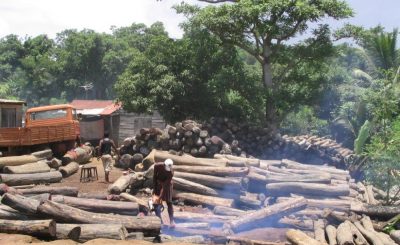Madagascar: Electoral Threat to Biodiversity
The Malagasy presidential election could usher in another Bolsonaro.

In the wake of the COP24 negotiations it is easy to forget that a much less publicised event will be taking place in just a matter of days, although it is one of equal significance to the global environment.
On 19 December, the Malagasy people go to the polls to vote for their choice of one of two remaining candidates in the second round of their presidential election.
Madagascar is home to an extraordinary abundance of biodiversity, a unique and precious assemblage of flora and fauna. The island is nearly twice the size of the British Isles, but with about ten times as many species of organisms.
Significant deforestation
Perhaps as much as three percent of the world’s species are found in Madagascar, with more than 95 percent of them found nowhere else. Overall, only five to ten percent of Madagascar’s species has been catalogued by science, although we have found most of the vertebrate animals and plants by now.
Out of necessity, Madagascar’s rural poor are consuming their natural resources directly as much as the people of any other country on earth. On top of that, illegal logging for export has become a major problem in the relatively small forests that have survived.
Wood from the several species of rosewood that occur on the island has been particularly sought after. Its deep red wood is prized and most of the accessible trees in Asia have already been harvested. This wood fetches very high prices globally, and especially in China.
Industrial-scale activities such as lumbering and mining are rapidly destroying most of the natural areas left on the island and the biodiversity that live in them.
These combined forces will continue to destroy the environment unless alternatives are found for the people. All 111 species of lemurs are unique Madagascar. As a result of the activities outlined above, almost every one is on the brink of extinction, making them the most endangered group of primates on Earth.
Comparisons with Brazil
Local law enforcement already faces a near insurmountable battle against the global appetite for rosewood.
If former president and current candidate Andry Rajoelina returns to power on 19 December, their job will become essentially impossible. Under his tenure from 2009-2014, illicit exports of wood from the island soared. After coming to power on the back of a military coup, one of his first acts was to tear up legal protections against felling certain hardwoods, thereby enriching himself and a cabal of timber barons.
Comparisons have been drawn to Brazil’s President-elect Bolsonaro, who has pledged to do away with similar environmental protections to make way for mining and industrial-scale farming.
And yet, while it is being lost rapidly, most of the original Brazilian rainforest is still in place. In contrast, approximately 90 percent of Madagascar’s vegetation has been destroyed over the centuries.
Madagascar is one of the poorest countries in the world, with an average share of GDP of about US $1500, about a tenth of the average in Brazil. Madagascar’s current population of about 26 million people is estimated to be on its way to doubling within the next 30 years (by 2050). In short, the situation there is even more urgent, if nowhere near as widely known.
Environmental sustainability
The world needs to learn to care enough about Madagascar’s people to help them attain environmental sustainability, but we seem to be a very long way from that goal.
Recent years have seen a spate of new world leaders gleefully setting the global environmental agenda back by decades.
Madagascar – a biological treasure-house of great significance – has relatively few resources left to exploit. With another Bolsonaro as President, it is the Malagasy people who will suffer most of all. But if they lose, so do we all.
*
Note to readers: please click the share buttons above. Forward this article to your email lists. Crosspost on your blog site, internet forums. etc.
Dr Peter H. Raven is a renowned botanist and environmentalist. He is president emeritus of the Missouri Botanical Garden.
Featured image is from The Ecologist

